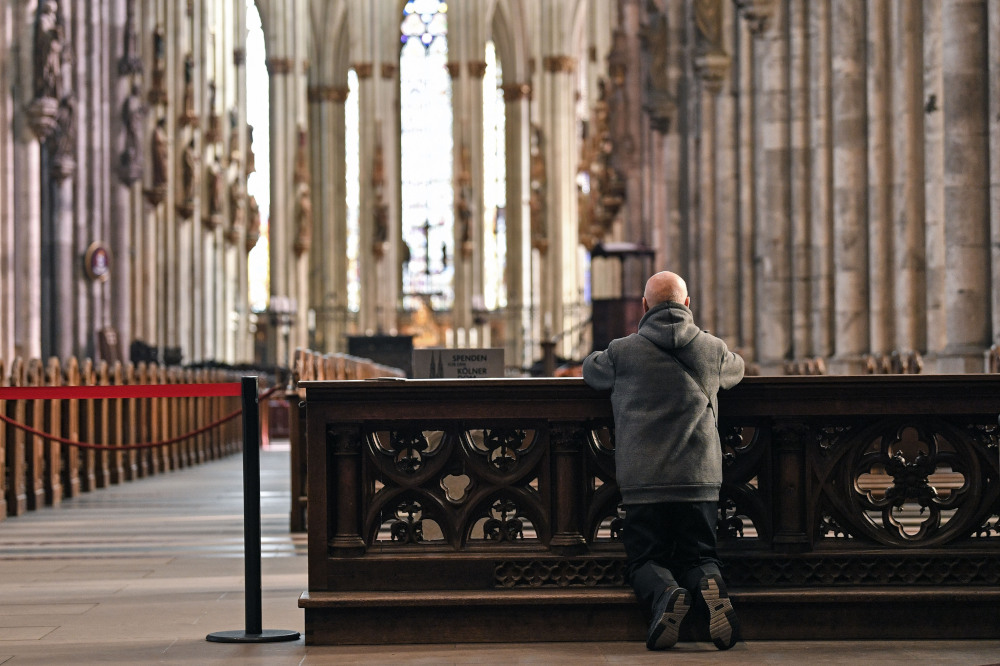
A man prays in the empty world famous Cologne Cathedral in Cologne, Germany, on Sunday, March 15, 2020. The number of people formally leaving the Catholic Church in Germany increased significantly last year as the church wrestles with a long-running scandal over abuse by clergy and with calls for far-reaching reform. The German Bishops' Conference said Wednesday that 522,821 left the church last year, up from 359,338 in 2021. (AP Photo/Martin Meissner, File)
More than half a million people formally left the Catholic Church in Germany last year, significantly higher than the previous record as the church wrestles with a long-running scandal over abuse by clergy and with calls for far-reaching reform.
The German Bishops' Conference said June 28 that 522,821 left the church last year, up from 359,338 in 2021, the previous record. That compared with just 1,447 people joining the Catholic Church, around the same as the previous year.
The departures left the number of Catholic Church members in Germany at nearly 20.94 million, just under a quarter of the population.
In Germany, people who are formally members of a church pay a so-called "church tax" that helps finance it in addition to the regular taxes the rest of the population pay. If they register their departure with local authorities, they no longer have to pay that. There are some exemptions for low earners, jobless, retirees, students and others.
The bishops' conference didn't detail reasons for the departures in an annual release of statistics. But many people have turned their backs on the church in recent years amid fallout from the scandal over abuse by clergy and others.
In 2018, a church-commissioned report concluded that at least 3,677 people were abused by clergy in Germany between 1946 and 2014. More than half of the victims were 13 or younger, and nearly a third served as altar boys.
Various dioceses tasked law firms or others to put together reports on their own past handling of abuse cases. That has led to massive tensions in the Cologne archdiocese, where the archbishop, Cardinal Rainer Maria Woelki, drew widespread criticism for his handling of a report he commissioned. His offer of resignation has been pending with Pope Francis for months.
Advertisement
An independent report in the Munich archdiocese, where the late Pope Benedict XVI served as archbishop from 1977 to 1982, last year faulted the handling of abuse cases by a string of church officials past and present, including the then-Cardinal Joseph Ratzinger himself.
The head of the Central Committee of German Catholics, an influential lay organization, said she was "sad but not surprised" at the number of departures last year.
"This figure speaks a clear language," Irme Stetter-Karp said in a statement. "The church has squandered trust, particularly as a result of the abuse scandal. But it also is not showing enough determination at present to implement visions for a future of Christian life in the church."
In response to the abuse crisis, German bishops and Stetter-Karp's organization led a three-year reform process, the "Synodal Path," that was marked by tensions between liberalizers and conservatives and drew open opposition from the Vatican. Its final assembly was held in March and called for the church to approve blessings of same-sex unions.
Four bishops are blocking financing for a follow-up process that is supposed to build on that work. The bishops' conference said last week that it would have to seek an "alternative financing model."
"We urgently need reforms in the church," Stetter-Karp said. "It is shameful that we now have to fight within the church for this to continue at all."




